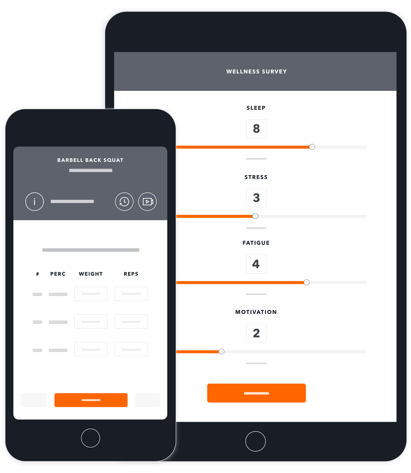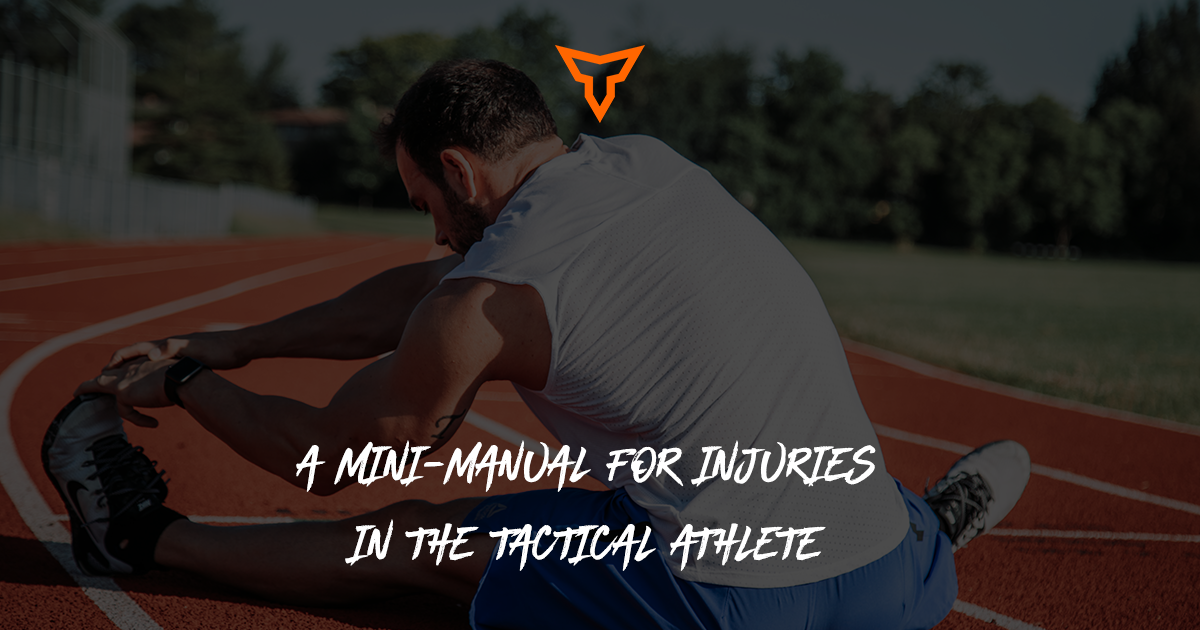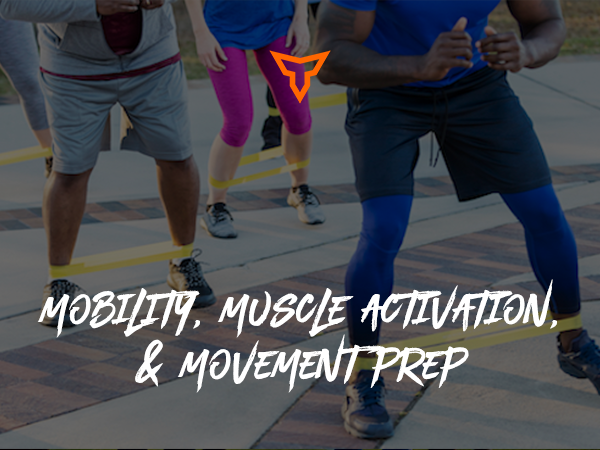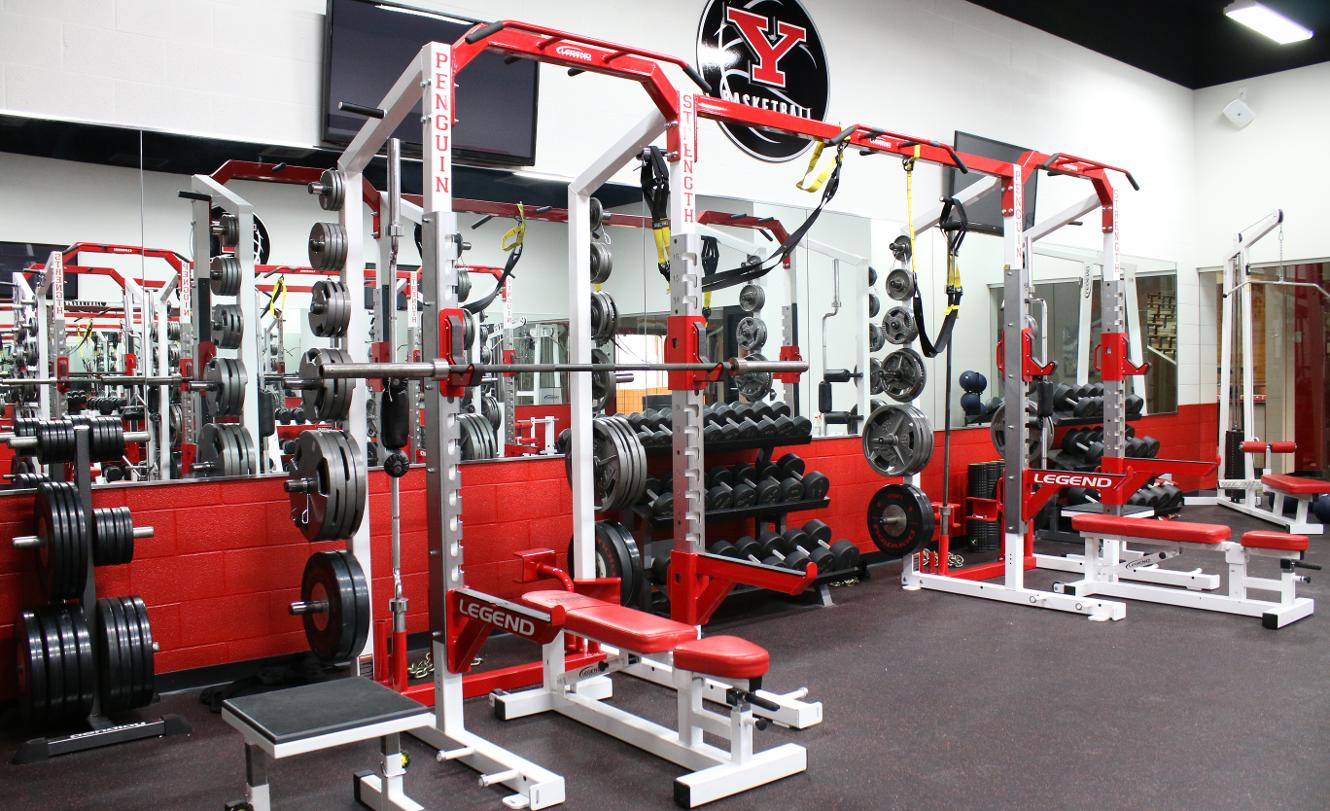Injury: The Mental and Physical Approach to Overcoming
It’s no secret that if you’ve been involved with sports or serious training long enough, then you’ve probably experienced an injury. From minor muscle strains to major reconstructive surgery, and everything in between, injuries can often turn into a setback. Although, they can also become a tremendous learning opportunity when approached correctly.
With each one, I’ve always tried to take the experience and the knowledge that I’ve obtained throughout the process and apply it to my clients, athletes, and myself. You can’t always prevent others or yourself from experiencing an injury, but you will always have control over your outlook throughout the process, and how you overcome that obstacle. At the time, it’s not always easy to see it this way, but as time goes on, we often realize that maybe it was all a blessing in disguise.
Because this process can be extremely challenging, both mentally and physically, it is imperative that a plan is established before taking the steps to recovery. Whether it be with ourselves, our athletes, or our clients, the approach itself is very similar, and certain steps need to be taken in order to return to sport or daily activity. As professionals, it is our obligation and duty to make sure that we help each individual return to activity as soon and as healthy as possible, while also helping them through those mentally challenging times that they will experience along the way. When helping ourselves, this process is no different.
To approach this, let’s use a 5 step system. First, the 5 steps we must apply as a professional helping an individual, and then the 5 that we must apply when helping ourselves.
Professionally We Must:
1: Listen, Listen, Listen
I’ve seen this often, an individual comes to their coach or trainer with an issue or injury, and the coach instantly begins rambling about what needs to be done. Remember, we are dealing with their personal health and their livelihood. Step back, relax, and let them do the talking. A majority of the time, they have never experienced anything like this before. They will be scared and unsure of what to do next. Let them tell you exactly what they're feeling and let them know that you care and are going to do whatever you can to help them. These people don’t care how much you know. They only care about how you can help them.
2: Know When to Ask for Help
Although there are many professionals that possess years of experience and high-level degrees, there are still going to be areas that we are all unfamiliar with, and that is okay. When dealing with something as important and precise as client & athlete injuries, we have to do what’s best for that individual, not what’s best for us and our ego. If there is something that we are not familiar with or that we know is out of our range of knowledge, then it is our obligation to pass that individual off to another professional, or at the very least reach out to that professional for a detailed discussion. Work together for the common goal.
3: Set Goals & Plan of Action
Once we have figured out exactly what is going on and what needs to be done, it’s time to set daily, weekly, and monthly goals for that individual to keep them on track. These goals should be easy enough to keep them motivated, but challenging enough to possess progression and adaptation. Once that is established, an action plan needs to be put into place. We now have their goals, now let them know what needs to be accomplished each day in order to achieve them. Have them write them down daily and reflect at the end of each day. Now you’ve given them an extra form of accountability, putting the process in their hands along with yours.


4: Incorporate Challenges and Wins
The recovery process can range from weeks to months, and even years. None of which happens as fast as we’d like. Motivation goes a long way, and the best way to stay motivated is to see some sort of consistent progress. Set up small daily or weekly challenges that reunites them with a bit of competitiveness that they’ve been missing. By completing these challenges, they will experience small wins. Continuous small wins add up into major victories over time. These wins will keep them motivated and help them keep a positive mindset.
5: Be Realistic, Not Limiting
Everyone has heard the story of the doctor who tells someone that they will never walk again, and then they do. But nobody hears the stories about the people who believe that doctor and lose all faith, only to never make a full recovery. It’s important for us to let the individual know what some honest, realistic expectations are, but don’t hold them back or put doubt in their mind. We all know the athletes and clients that thrive off of situations like this, but for every one of those, there are multiple people who need that positive reassurance that everything is going to work out. So, understand your audience, and know the type of motivation they respond best to. Now the tables have turned, we the professionals are now injured. If you have been fortunate enough to avoid this situation, then I’m happy for you. Although, those of you who have experienced injury understand that just because we have the knowledge and experience to help others, does not mean that it’s going to be easy for us. In fact, it can be even more challenging than helping someone else. Because of that, here are 5 steps that we must apply in order to help ourselves.
Personally We Must:
1: Surround Yourself with Resources:
We spend our lives building connections and developing relationships with professionals all throughout the industry. Now we must use those resources and connections that we have built over the years in order to help ourselves. Never be too prideful to ask for help. The best thing we can do in this situation is taking a step back, humble ourselves, and look for help. If you have to travel for that help, do it. It will certainly be worth it. Find someone who can help you diagnose the issue and put a plan together, just as you would for any of your clients or athletes.
2: Know When to Press Pause
For most of us, we are instilled with this mindset that we must never stop; that if we want to achieve our goals we must keep going. But sometimes when we are constantly going, and our minds are full of things coming from many directions, we become paralyzed and unable to see the light at the end of the tunnel. It’s okay to take a few weeks off. Sit down and reflect on your life and your current situation. Give focus and gratitude to those things that maybe you’ve been neglecting. You will be surprised how much it helps you once you begin the road to recovery.
3: Work on Weaknesses
Every injury that I’ve ever had has given me an opportunity to work on something else that I was neglecting. Whether this was physical or psychological, the injury is often a blessing in disguise and an opportunity staring you directly in your face. Most injuries are usually caused by an imbalance or neglect of another area of our body. While you’re recovering, take the time to focus on those other things such as stretching and mobility, overall conditioning, nutrition, stress management, etc. If we don’t take the time to find the cause and approach it, then there’s always a chance it may happen again.
4: Be Vulnerable
As an elite powerlifter, I used to think that the sport defined me; that my clients, friends, and family would think less of me if I stopped competing, or if I wasn’t as good as I once was. As professionals, we oftentimes have that same mindset within our profession and with our clients. We sometimes believe that clients and athletes expect us to be tough, unbreakable, and unfazed at all times.
The truth is, at the end of the day, no one really cares about those things. As a matter of fact, it’s okay to let them see you in a vulnerable state. Let your clients and athletes know that you are human. Open up to them and tell them how you’re feeling. Let them know that they can relate to you, and let them witness you going through the same things that they are, both physically and mentally. In the end, this will help to build an even stronger relationship.
5. Clear Your Head
Unless we are working on our physical therapy or any of the things listed above, get the injury off of your mind and out of your head. One of the worst things we can do is become consumed with something when we have no reason to be thinking about it. If you are performing rehab work, talking with a professional, or putting a plan of action together, then be 100% in that moment. When you aren’t, let it leave your mind and focus on those things right in front of you.
Injuries are a part of life and often occur when we least expect it. As individuals and professionals, we can either simply get by during these challenging times, or we can take the steps to grow and strive in order to become better versions of ourselves.
Subscribe to our blog
Subscribe to receive the latest blog posts to your inbox every week.
Related posts

A Mini-Manual For Injuries in the Tactical Athlete

Injury Prevention 101

